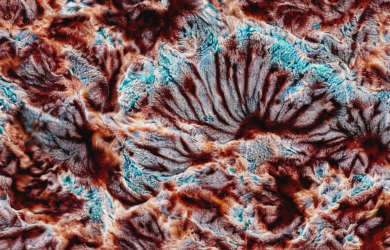
Lila Gaudêncio's research explores how community currencies can reframe our relationship with money.
I am interested in studying how currencies fulfil their aim of helping local communities and how they help us to rethink capitalism through a series of little revolutions.
Lila Gaudêncio
Can community currencies enable people to rethink their relationship with money? Lila Gaudêncio’s PhD, which she began this autumn, will explore the impact of community currencies in Brazil, introduced as a public policy by former President Lula’s government in 2003 to protect and develop local economies. Over 150 banks were created as a result, of which around a third are still active. After President Bolsonaro’s election the strategy went into reverse, but many communities resisted, with banks migrating online in order to keep their costs down.
Brazil’s community currencies are tied to the national currency and enable local people to take out a loan and use that in a network of shops that accept them. Goods in the shops are slightly cheaper than in other shops to provide an incentive to use the currency. “A community currency injects money into local economies and keeps wealth within those communities,” says Lila. “It provides alternative forms of economic activity which are more just and egalitarian. For example, you cannot accumulate local currencies. They have to circulate to work.”
Lila’s PhD follows on from her master’s on the aesthetics of community currencies – what they look like and how they portray local identity.
She says: “For my PhD I want to look at what changes in these communities when they create their own money, that process of unlearning and developing a new understanding about money and value. That brings up questions about democracy, about local memory and local governance. I’m interested in how the production of citizenship is affected.”
Early years
Lila [2021] was born in Belo Horizonte in south east Brazil to a Brazilian mother and a Uruguayan father. The family lived in Uruguay when she was little before moving to New York. Lila attended elementary school there until sixth grade when her family returned to Belo Horizonte. She has since become very embedded in local issues there.
At school Lila was interested in a wide range of subjects which made it difficult to decide what to do when she left. The first in her family to go to university, she opted for a journalism and social communications degree where she could “do a little of everything” and where she could explore and link different areas. That interdisciplinary approach has stayed with her throughout her academic career.
Lila’s undergraduate thesis was on theatre and culture and involved analysing around 200 newspaper reviews and speaking to editors and journalists. She found many reviews were not really critiques, but more superficial descriptions of plays. Some were just a summary of what was in the press release about the work because the journalists lacked the time to go into any more depth.
Lila also worked on the university newspaper for a year and after graduating got a job at a local newspaper as a news designer, laying out pages. During that time she was also studying for a second degree in visual arts. “I felt I chose my first degree in order to get a job whereas my second was because I really wanted to learn more and I was already working in that area,” says Lila.
Exhibitions and projects
After two years she needed more of a challenge. In 2014 as part of her visual arts course, Lila had spent a semester in Nottingham on an exchange programme where she studied public culture and the visual arts. When she returned she went back to the newspaper before starting to work in university extension projects and exhibitions in Belo Horizonte through the federal university’s science museum. This is something she has been doing up until she left Brazil for Cambridge in September 2021.
In her first project, she curated an exhibition focused on the restoration of an urban water basin in Belo Horizonte, collaborating with a university extension project, artists and local communities to raise environmental consciousness. From then on she worked in exhibitions, either as an assistant curator or in elaborating exhibit and graphic design projects, including one on the dictatorship period in Brazil. “The aim was to make knowledge accessible in a more interesting, fun way,” says Lila.
Master’s and beyond
In 2016 she finished her second degree. For her thesis she was interested in exploring the relationship between politics and aesthetics, in particular in relation to community currencies. In 2018, Lila began a master’s at the Federal University of Minas Gerais where she delved deeper into the names and visuals used by the currencies which are very tied to local memory and community. What fascinated her is how they include aspects of community life which are not represented in the national discourse.
She travelled to three places in Brazil which had community currencies to speak to local people. Her thesis has four visual chapters that are just images of the currencies. It investigates how the images represent different subjectivities and feelings of belonging and pride.
While doing her master’s Lila had been reading some papers by Sian Lazar at the University of Cambridge. She discovered that she was accepting PhD students so she emailed Lazar and heard back the same day. At the time Lila was working on a project called Córregos Vivos (‘living streams’) with a collective of artists and architects which was looking at the relationship between the river and the local community in relation to ecological issues. Lila’s group was focused on alternative economic ideas and proposed a community bank as a way to restore the river basin area. The idea didn’t take off, but Lila is keen to explore it further in her interdisciplinary PhD on Latin American Studies.
She plans to do fieldwork next year in an area where a community currency has been in place for years and in another where it is less established so she can understand what works and what doesn’t. One area of interest is the migration of community currencies online and onto apps and how this has enabled community banks in different parts of the country to band together and form local and national networks.
This means they can be more self-sufficient and easier to use. It is a phenomenon that has accelerated as a result of the pandemic. “I am interested in studying how currencies fulfil their aim of helping local communities and how they help us to rethink capitalism through a series of little revolutions,” she says.












